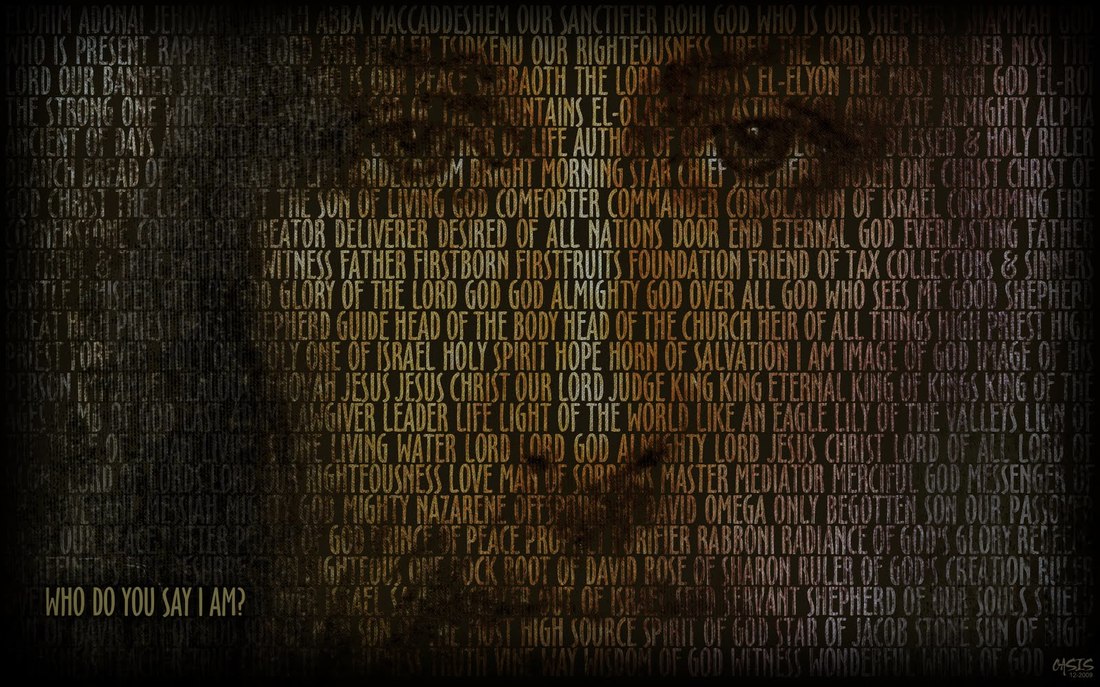We all have a testimony to give about a living God at work in our lives. READING: Matthew 16:13-20 Journalist Anthony Burgess wrote, “If God is like Jesus, then God is worth believing in.” What does this tell you about Jesus? And more importantly, what does it tell you about yourself? Despite any questions over his divinity and humanity, Jesus lives his life in a way that God desires all of us to live, that is to say with justice, compassion, and mercy. Last week God revealed a bit of himself when Moses asks, "Who are you?" God responded by identifying himself with Israel’s ancestors, and the promise he made to them as their God. Today Jesus asks the questions. And it’s his disciples who give their answers with people from Israel’s past. When Jesus asks the first question, “Who do people say that I am?” there are different responses. Some see him as John the Baptist while others believe he is a prophet. The confusion stems from the fact that Jesus doesn’t quite fit the mold of those historical figures. There is something unique about the way he testifies to the kingdom of God. His interpretation of the law is captivating. And his teachings of love and acceptance draw people in. This makes it hard to define him by ordinary standards. What they know is Jesus is not ordinary. He shifts the discussion by asking his disciples, “Who do say that I am?” With great enthusiasm Peter blurts out, “You are the Christ” (The Messiah). In what seems like a wild guess, Peter is quick to identify Jesus with the One that Israel has longed for over the centuries; the Messiah that would rescue them from their captivity. What did Peter see that the others could not? Peter’s historic confession not only becomes one of the greatest affirmations of God in Christ Jesus, but it is also one of the most rewarding. Because of his answer Jesus blesses Peter by giving him the keys to the kingdom of heaven!  Now I have a daughter who can’t wait to learn how to drive. I’ll admit I’m terrified to give her the keys to a vehicle I cannot afford to replace. I can’t help but wonder, “Can I trust her? Does she have the maturity to handle such a big responsibility?” I can imagine Jesus having the same thought. Peter is given the keys to a very powerful machine. Crashing it is not an option. Peter is a lot like your average sixteen-year-old boy; quick to answer; acts like he knows it all; constantly bumbling and stumbling; runs from responsibility, and almost always misses the point. In the following verses Jesus will go as far as rebuking him, calling him “Satan” for setting his mind on human things instead of divine. So what then inspires Jesus to hand over the keys to the kingdom of heaven to such an irresponsible buffoon? Surely there were better choices. I believe Jesus rewards him not for his rightness or righteousness, but instead for his confession, that is to say the way he identifies with Jesus. This is important to us because we, the gathered church, are called to testify to Jesus and identify with him by acting accordingly. For better or worst, it’s in the way we testify to God at work in us, that people will come to know who Jesus is. Self identify, with individuals as well as groups, is important to who we are and who we will become. It not only builds up people but societies as well. It gives us a sense of social belonging, as well as a particular image or point of view to live by. And allows people to know if they can trust us, or if they should avoid us. Our jobs, our families and friends, our civic and religious involvement, and even our taste in music say a lot about who we are. A teacher at my seminary had an altercation with a driver on the road. While this was upsetting on its own, she really didn’t let it bother her until she saw Fuller Seminary parking sticker on the back of the car. One little sticker, she reminded us, can say a lot. And this one in particular had the power to define Christianity (and Christians) either positively or negatively. Historically this text has been used to justify human authority of the church. But I see it differently. I believe this passage teaches us how to define Jesus’ authority, and our call to submit to by being a living testimony to God at work in the world. And believe me, we all have a testimony to give. Years ago, I was at a party when a neighbor asked if I’d go to church with him. He had recently joined AA and didn’t want to go alone. As we were walking to church, I couldn’t help but to ask him, “Why me?” His response was life changing. He said I was the only one he knew who ever talked about God without adding damn after it. That one little confession, his simple testimony, allowed me to see God at work in my life. Little did I know that it would change my life. Jesus gives us the keys of the kingdom to open the door to a new life. We cannot just shove them in our pocket or purses. Instead we must use them. We must testify to God at work in our life by being the heart and hands of God who comes to us where we are, and loves us just as we are. It’s up to us to proclaim God’s love by being more like Jesus, full of justice, compassion, and mercy. So what does this means for us today? Jesus is asking us to be a living testimony to God’s love in the world. He’s calling us to cross over to the wrong side of the tracks, across picket lines, religious lines and even political party lines, to be there for the lost, the forgotten, and the thrown away. And let’s face it, there is a lot of pain and hurt in our world and in our social groups. As Mother Teresa understood it, we must be willing to “Help one person at a time, starting with the person nearest you.” Your challenge this week is to go out into the world and proclaim the name of Jesus with your heart and your hands. Embrace life with such radical love and forgiveness that every person you come in contact with will see the light and love of God in you. This is important because, as Jason Byassee writes “God desires a people of mercy who adore the poor, who treasure creation, who notice the dignity in every single human face. Not because it’s nice. But because God has a human face.” As you now know, that face has a name. And he’s curious how you will answer when he asks, “So who do you say that I am?” This is the Good News that I give to you. Go now and share it with the world. Use words only if you have to. Amen. Work Cited Byassee, Jason. "What Are We Baptized For?" Sojourners, May 2017: 44. Kim, Jin S. Feasting on the Word: Year A, Vol. 3. Edited by David Bartlett and Barbara Brown Taylor. Louisville: Westminster John Knox, 2011.
0 Comments
Leave a Reply. |
Rev. Ianhas been blogging under the name: Jesus not Jesús: Looking for Christ in the face of strangers. You can read his posts and browse his archives by clicking here. Sermon Archives
November 2021
Worship with us live on Facebook
Sunday at 11:00 a.m. |
 RSS Feed
RSS Feed

